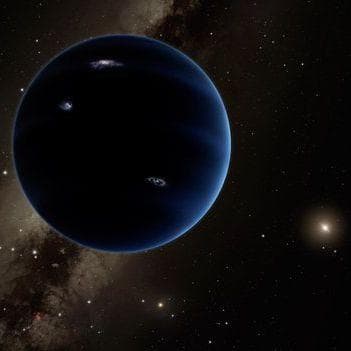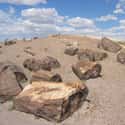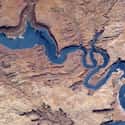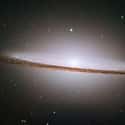-
(#9) Radiocarbon Dating Doesn't Work
The process of measuring the decay of naturally occurring radioisotope carbon-14 to estimate the age of carbon-bearing materials (called radiocarbon dating) has given us a window into determining the true age of fossils around the world. Naturally, creationists must find a way to sweep aside the findings of radiocarbon dating - so they simply claim it doesn't work.
Among the made-up ways creationists use to discard carbon-14 are that decay rates aren't constant, meaning dating can't be trusted; that it's inaccurate because of atmospheric conditions or cosmic rays; or that it simply doesn't work with anything older than 5,730 years (the half-life of the isotope). Some Biblical literalists simply claim the Great Flood disrupted the amount of carbon-14 on Earth, meaning it's useless to measure it.
Carbon-14 dating is actually a process that's been constantly improving since its discovery in the late '40s, and has determined the age of objects going back 60,000 years. While it can produce errors, it's been extremely important in scientific discovery, dating everything from fossilized forests to the Dead Sea Scrolls.
-
(#11) The Great Flood Formed the Grand Canyon
Given that the earth is full of geological structures much older than 6,000 years, creationists have had to find ways to explain each one away. Most are simply written off as having been created by the receding waters of the Great Flood. The Grand Canyon is given as a perfect example of something carved by the Flood, as they claim it to be so much higher than the Colorado River that it must have either been formed by uphill-flowing sediment (which is impossible) or weak material being swept away by rushing waters. Moreover, the rock layers that make up the canyon are from vastly different eras in some places - proof they were dumped there by raging water.
Naturally, this isn't true, and grossly misunderstands geology. The Grand Canyon is an intricate, winding chasm that runs 277 miles of lazy, slow-rolling curves, not a straight spillway that a huge flood would form. The inconsistencies in the rock layers are easily explained by two billion years of upheaval, plate tectonics, and weather - all taking place as the Colorado Plateau rose up.
-
(#7) The Speed of Light Isn't Constant
If God created the heavens and the Earth 6,000 years ago, how can light from distant galaxies be millions or billions of years old? Creationists have come up with a convenient explanation: the speed of light isn't constant, but was actually much faster in the past. So the light from these stars must have traveled much faster, in order for early man to have seen it. A number of explanations have been given by creationists to solve this "starlight problem," but none of have survived scientific scrutiny, nor do they hold up against basic logic.
While there is some evidence of the existence of a variable speed of light in a vacuum, this is based mostly on theoretical research, and would explain only the movement of photons at the very beginning of the universe - a time now known to be rife with rapid expansion. The concept is nowhere near as simple as "God made the light go faster" and that belief depends on breaking some of the fundamental constants of the universe.
-
(#12) God Designed the Universe "Intelligently"
As more and more evidence has piled up to disprove Young Earth Creationist claims, new strands of creationism have appeared. The most prominent is intelligent design (ID) - the theory that life, or the universe, cannot have arisen by chance, but was designed and created by some intelligent entity. While ID discards much of the Bible-based belief of Young Earth Creationism (e.g., God made the world in six days, the Earth is 6,000 years old, etc), it still relies on an unscientific principle - that God made anything that's too complex to have simply evolved by accident.
ID might have more of a scientific bent, but it's not anywhere close to accepted by mainstream science. It's still creationism, just with less Biblical literalism.
-
(#5) Complex Biological Systems Can't Have Evolved
Creationists invented the term "irreducible complexity" to explain that things like the eye and the digestive system must have been created by God. These systems are described as "a single system composed of several well-matched, interacting parts that contribute to the basic function, wherein the removal of any one of the parts [will cause] the system to effectively cease functioning." Essentially, any change in a complex system will cause the system to totally shut down - just like if you take out any part of a car's engine, it doesn't run.
The problem with this concept is that it doesn't take into account how evolution actually works: countless mutations over countless generations of an organism, some of which allow the organism to function better, and others that hinder the organism and therefore aren't passed on. Also, "it's complicated, so God did it" is not a scientifically sound argument. And car engines don't reproduce. Irreducible complexity has been refuted in scientific journals, and rejected by the greater biology community.
-
(#1) Creation Took Six Days, and the Earth Is 6,000 Years Old
Young Earth Creationism holds strictly to the definition of creation in Genesis - God made the world in six days, with time beginning around 4,000 BC. This definition has been prominent in Protestantism since the Reformation, with Martin Luther being among its first notable proponents. While there are strands of creationism that don't accept this, instead believing in the scientifically given age of the earth, all creationists believe that humans were created by God, either directly or through divine intervention.
Various surveys over the last two decades have found that as many as 47% of Americans believe in some form of Young Earth Creationism, with God making the universe in six days, and creating humans in His image. No compelling scientific evidence proving Young Earth Creationism has ever withstood scientific scrutiny.
New Random Displays Display All By Ranking
About This Tool
Creationists believe that the universe, earth, and all living things were created by one god. Creationism that regards God as a creator is generally believed by mainstream monotheists. In the development of science and civilization, the theory of evolution has been continuously confirmed and accepted by most people, and the theory of creation has gradually lost its influence and new force.
In the past decades, there has even been a tendency to resist creationism in theology, philosophy, and science. There are many controversies about the correctness of creationism, and it has been criticized as lacking scientific value. The random tool explained 13 things that Creationists believe, despite being disproven by science.
Our data comes from Ranker, If you want to participate in the ranking of items displayed on this page, please click here.













